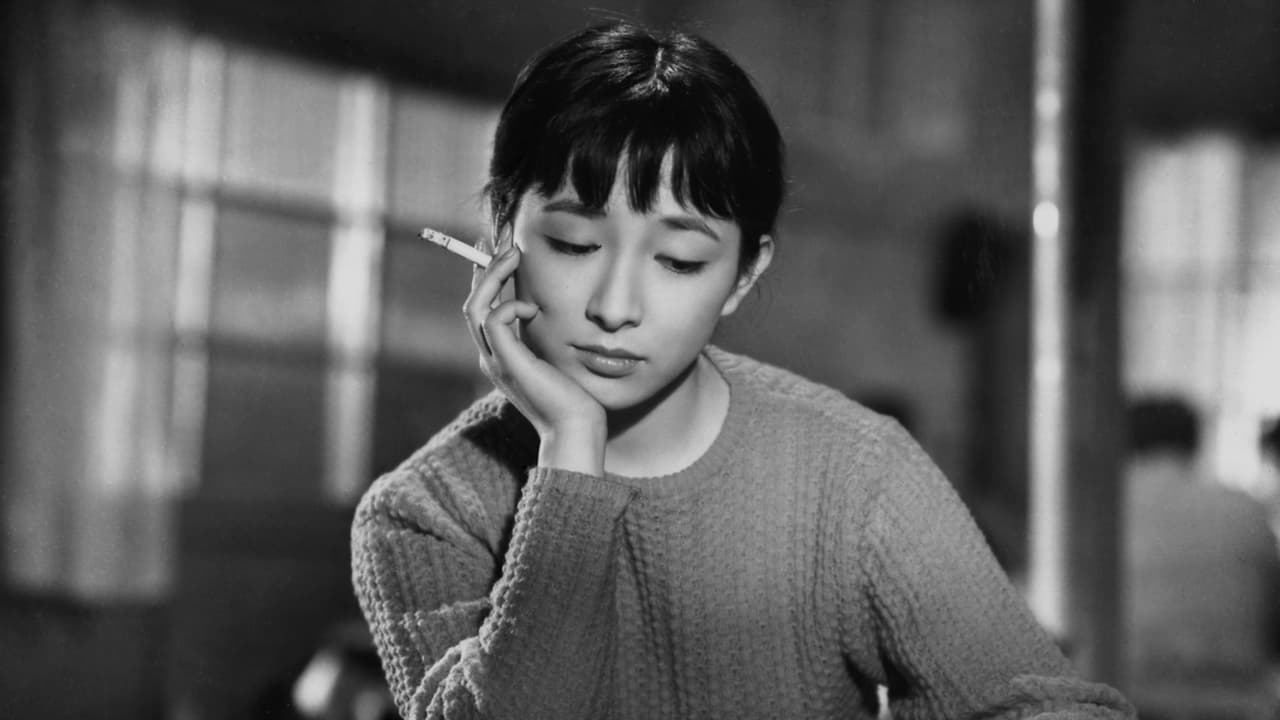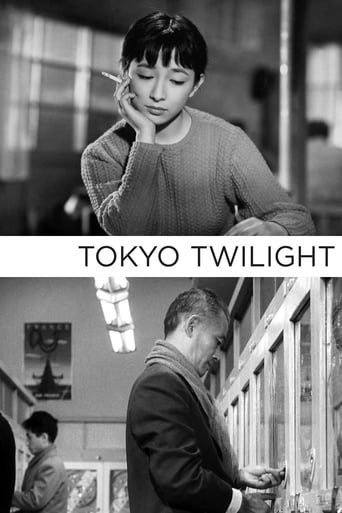Steineded
How sad is this?
Reptileenbu
Did you people see the same film I saw?
CrawlerChunky
In truth, there is barely enough story here to make a film.
Gurlyndrobb
While it doesn't offer any answers, it both thrills and makes you think.
Andres Salama
Tokyo in the mid 1950s. In this stereotypical women's picture, a single, middle aged man (Chishu Ryu, an Ozu regular), tries against all odds to raise his two grown troubled daughters. One (the great Setsuko Hara, another Ozu regular) is a single mother who has left her husband and return to his father's home. The younger daughter is even more troubled, is surrounded by bad companies, and has become pregnant by her no good boyfriend. Soon, the two sisters find in a mahjong joint their long lost mother, who seems curiously unmoved at learning that her son has died years ago in a climbing accident. The sloppy plot hurts the movie a lot (only in bad melodramas, one of the characters commits suicide by throwing herself under a train, but doesn't die until she tells her story). To its credit, though, this film tackles the issue of abortion decades before western films did, but this is still minor Ozu, somewhat moving, but done in by its unnecessary melodrama and its barely believable plot points. There are many movies Ozu made during this era - from Tokyo Story, Floating Weeds, Early Summer, Late Spring, Good Morning, End of Summer, etc., that are better than this. Still, worth seeing if you are not expecting a masterpiece.
cervus35
I regret to say this, but even the brilliant Ozu, even the mature Ozu, had off-days. Ozu created many masterpieces, but this film is far less. The disasters come so fast, their development is so thin, the characters are so weakly developed and the coincidence upon which the plot turns is so great that this movie falls way below Tokyo Story, Late Spring, Equinox Flower or An Autumn Afternoon. If this is a masterpiece, what are those films?All the disasters of this family are pushed onto the screen in too short a time -- the pregnancy, the abandonment by the mother, Setsuko's breakup with her own husband. The main weakness, I think, is the lack of development of the wife who deserted Ryu. Why did she leave? The coincidence that the daughter and her friends frequent a mah-jongg parlor which turns out to be owned by the long-gone mother -- coincidences like that happen in real life, but in movies they are much too convenient.Long live Ozu! But not "Tokyo Twilight."
rschmeec
This is a relatively "dark" film, symbolized by the cold weather outside throughout the film, and the various ways (wearing masks, sitting close to the fire, snuggling up) in which the characters cope with the cold.I cannot agree with the previous review's strictures about the leading male character, that he is paternalistic, passive, and judgmental. What came across to me was that he cared deeply for his children and accepted his responsibility as a parent to address their problems. He has been abandoned by his wife and the mother of his children, he says he has done the best he could to raise them, at the same time acknowledging the need for children to have two parents. The theme of parental responsibility seems a common element in this with the last Ozu film I saw: THERE WAS A FATHER.Although this is a rather "dark" film, the ending, like that of many of Shakespeare's plays, ends in some form of reconciliation: the one daughter wanting to start a new life, the other deciding to return, with her child, to her husband, from whom she has been separated.
alsolikelife
A deeply, uncharacteristically dark film, even among other "dark" Ozu films (i.e. A HEN IN THE WIND, EARLY SPRING) that may require a theatrical setting for the viewer to be fully absorbed in the strange, dark textures of the world Ozu presents. I myself was pretty alienated for the first 1/2 hour or so until the wintry chill of the mise-en-scene (brilliantly suggested in the slightly hunched-over postures of the characters) found its way into me instead of keeping me at arm's length. And from there this story builds in unwavering intensity as it follows a family on a slow slide into dissolution: a passive, judgmental patriarch (played by Chisyu Ryu, subverting his gently accepting persona in a way that is shocking), his elder daughter, a divorcee with a single child (Setsuko Hara, playing brilliantly against type -- who'd have thought the sweetest lady in '50s Japan had such an evil scowl?), and his younger daughter (Ineko Arima, a revelation), secretly pregnant and searching for her boyfriend, get a major shakeup when their absent mother, who the father had told them was long dead, re-enters their lives. Ozu's vision of post-war Japan and how the sins of one generation get passed on to the next, illustrated brilliantly by a series of parallels drawn sensitively between characters, manages to be both compassionate and scathing -- even a seemingly cop-out happy denouement is embedded with a poison pill. A masterpiece, without question, one that throws all of Ozu's depictions of modern society in a beautifully devastating new light.


